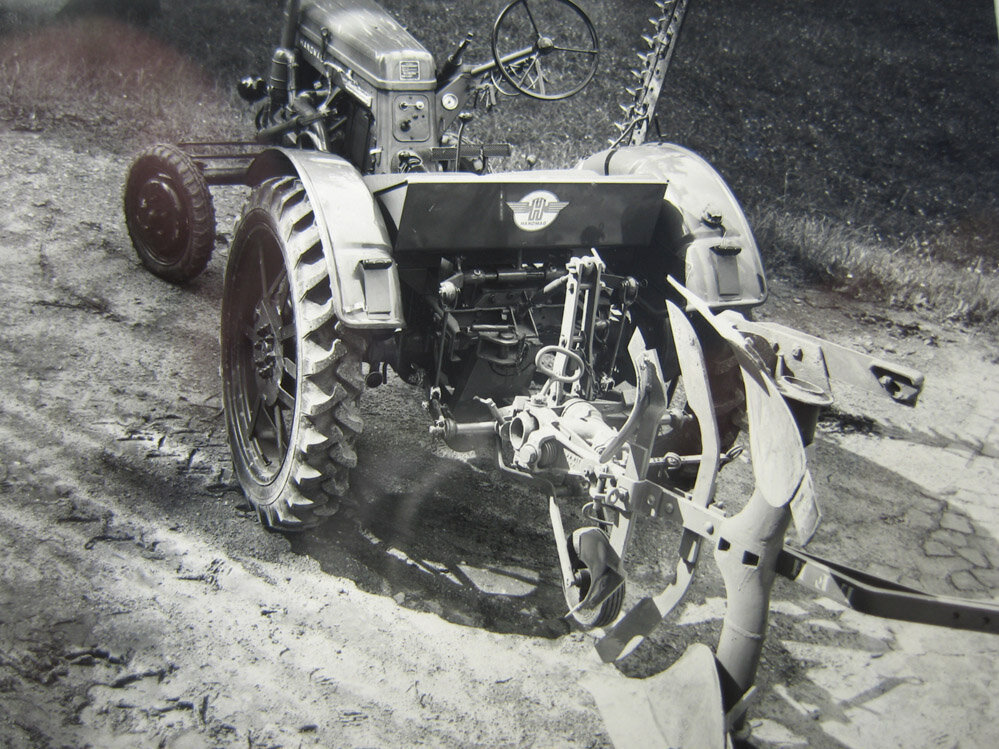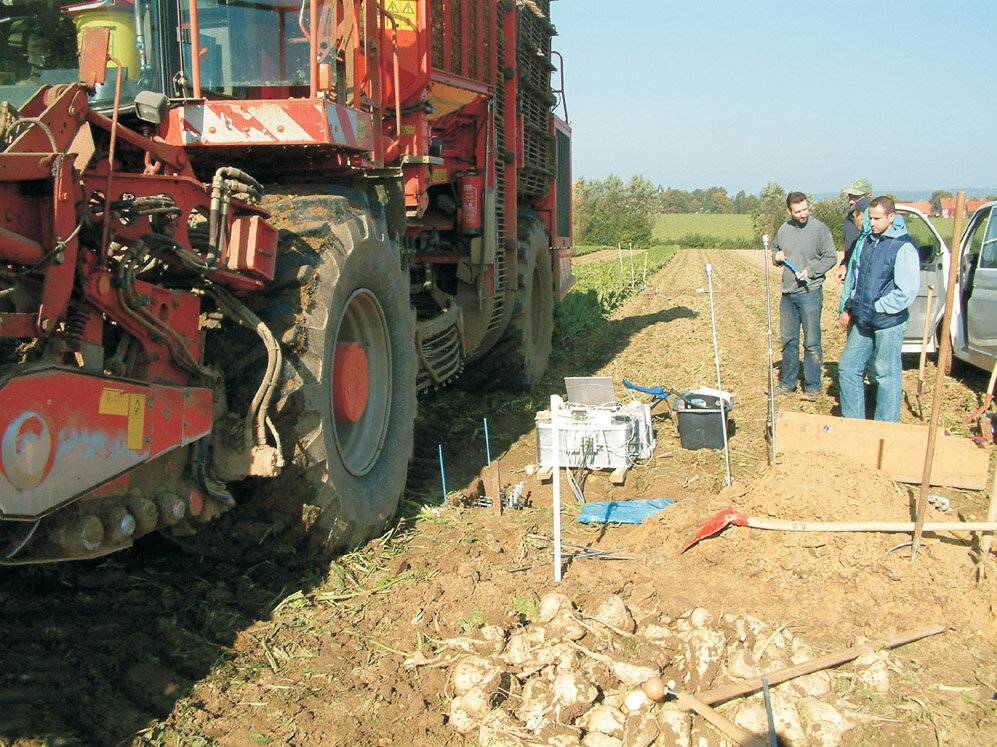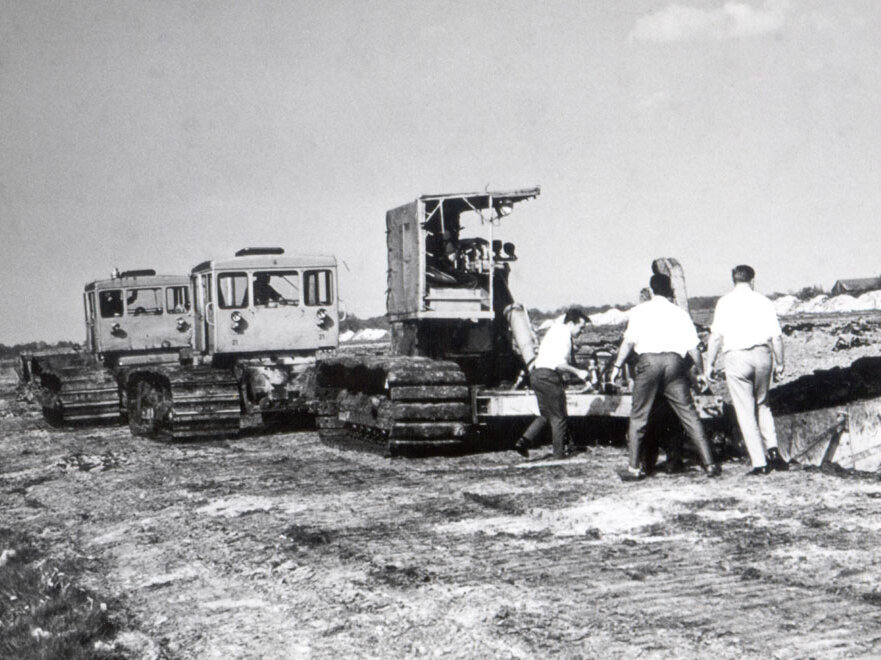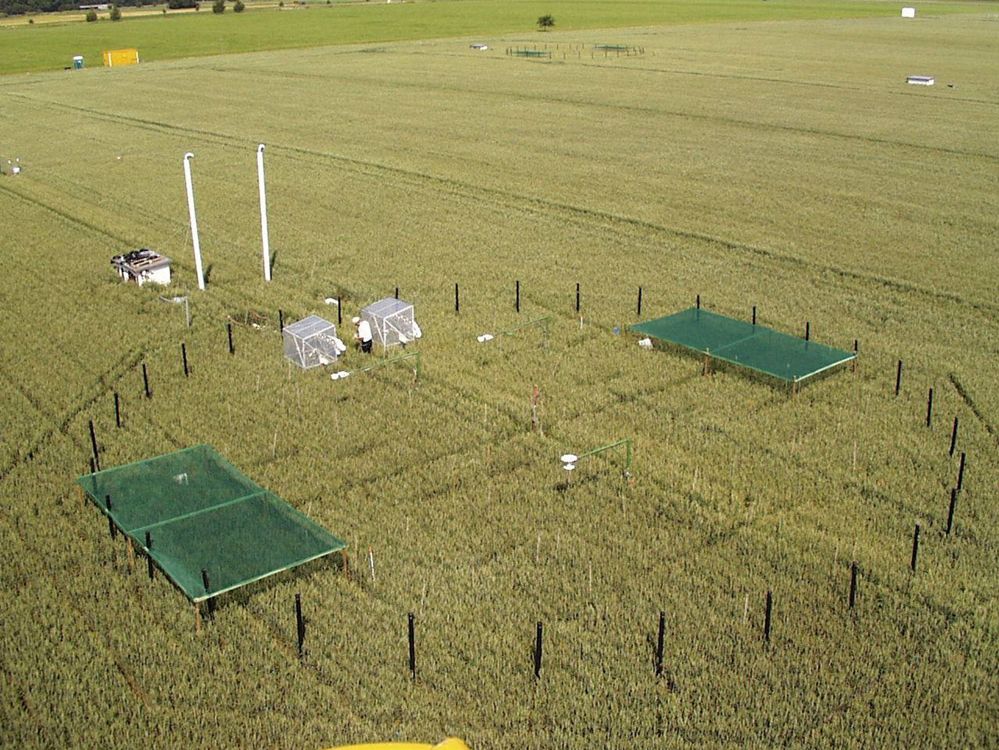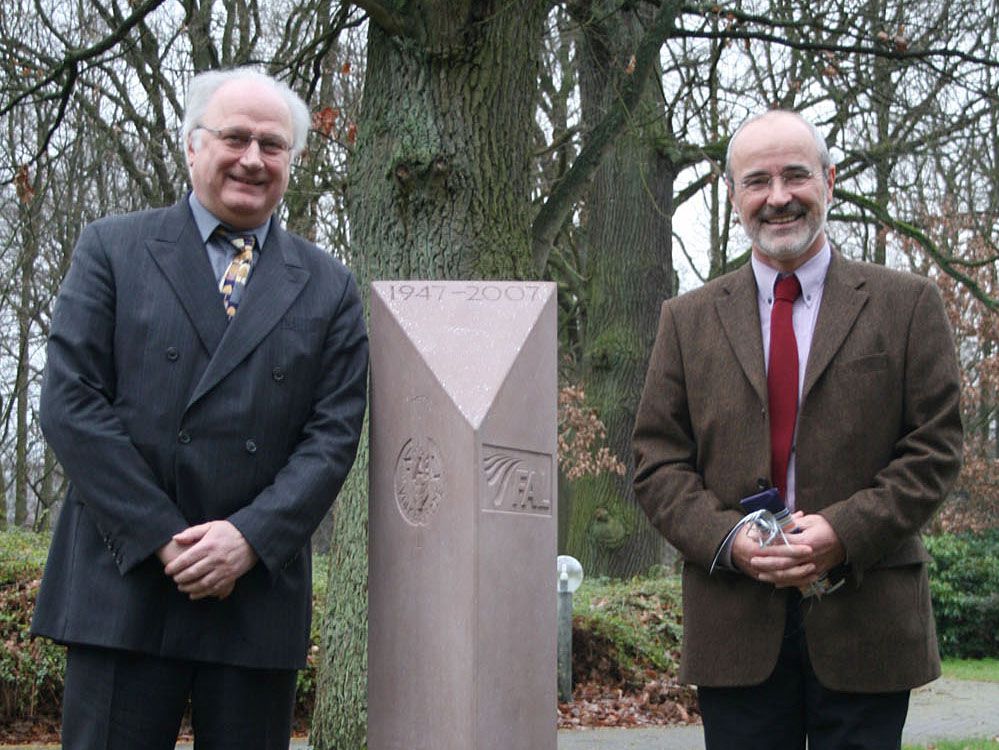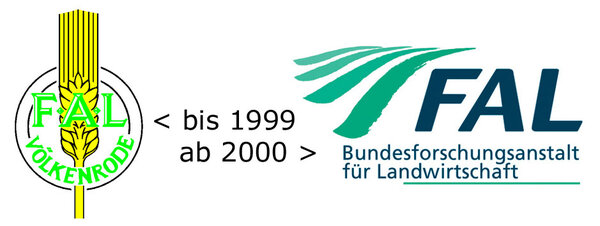1948 – 1968
The Agricultural Research Centre Braunschweig-Völkenrode (FAL) was established in Braunschweig in 1947, on the large property previously used for aviation research by the German Reich. Originally an organ of the State of Lower Saxony from September 1949, the FAL became a national agency on July 1, 1966. Since 1977, it has been called the Federal Agricultural Research Centre (FAL).
FAL was founded against the background of insufficient food supplies as a consequence of the Second World War. It was characterised by a broad spectrum of topics under one roof, including the research areas Soil/Plants, Animals, Technology and Economics. FAL's research topics were always related to contemporary policy decision needs. Changing economic and general social conditions influenced agriculture as well and were reflected in the respective research emphasis as well as the number and direction of the institutes.
Whereas the shortages following the Second World War led primarily to a focus on increasing agricultural production and using all available resources, with increasing affluence, the scope of research questions broadened to include product quality, and then process quality, in the production of agricultural products.
The book Ein Ort der Forschung (A Place of Research) by historian Daniel Jankowski traces the founding phase of the FAL and its development until it was taken over by the German federal government in 1966. It also sheds light on the history of the Aviation Research Centre previously located on the Braunschweig site. The book is available online as a PDF (in German).
1969 – 1989
After FAL was transferred to the national government in 1966, it experienced a significant expansion in activities with the take-over of the Max Planck Society's Institute for Animal Breeding and Animal Nutrition and the integration of the German Federal Research Centre for Small Animal Breeding in 1974. The research area “Plants” was expanded to include plant breeding research. The increasing significance of environmental protection led, amongst other things, to the establishment of the Institute for Production and Ecotoxicology in 1980.
The internationalisation of markets, the increasing costs of EU agricultural policy, production surpluses and the impact of the milk quotas introduced in 1984 were important topics for those FAL institutes with an economic focus. Their research outcomes flowed directly into the consultation needs of the ministry.
1989 – 1992 German Unification
The FAL Institute for Agricultural Climate Research was founded in Müncheberg in 1992 in the course of German unification. Plant breeding research at FAL was gradually reduced in parallel with the founding of the Federal Centre for Breeding Research on Cultivated Plants (BAZ).
1992 – 2007
Changing emphases in agricultural policy, necessitated by the BSE crisis of 2001, led to a strengthening of consumer protection, food safety, animal protection and the promotion of organic farming. As a result, at the end of 2000, FAL established the Institute for Organic Farming in Trenthorst, and in 2002, the Institute for Animal Protection and Husbandry in Celle. Socio-economic research on the development of rural areas was launched in 2004 with a separate Institute for Rural Areas. This topic had previously been addressed in another form by FAL's economics institutes.

